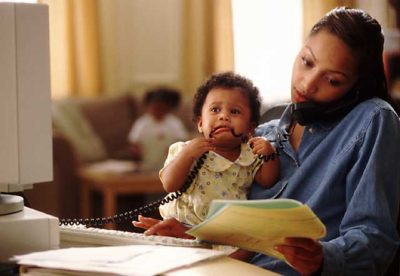
The U.S. has been making great strides towards gender equality in recent years. So why is it that women still bear a heavier load than men when it comes to balancing work and family?
A 2013 survey found that mothers with children under the age of 18 were three times as likely as fathers to say that being a working parent made it more difficult to advance in their career. In addition, an analysis of government economic data showed that while young men and women generally start out with similar salaries, women struggle to keep up the pace once they decide to have children.
This data, released in an article from the Pew Research Center, is an alarming reminder that we are not making the progress necessary to ensure workplace equality among both genders. Kim Parker, Director of Social Trends Research at the center, writes:
“One reason mothers are more likely than fathers to say it’s harder to get ahead in the workplace may be that women are much more likely than men to experience a variety of family-related career interruptions. About four-in-ten working mothers (42%) say that at some point in their working life, they had reduced their hours in order to care for a child or other family member, while just 28% of working fathers say they had done the same.”
This motherhood penalty is a very real reality for working women, and it is up to the private sector to change that reality into one where a healthy work/life balance is successfully achieved through supportive and effective policies.
